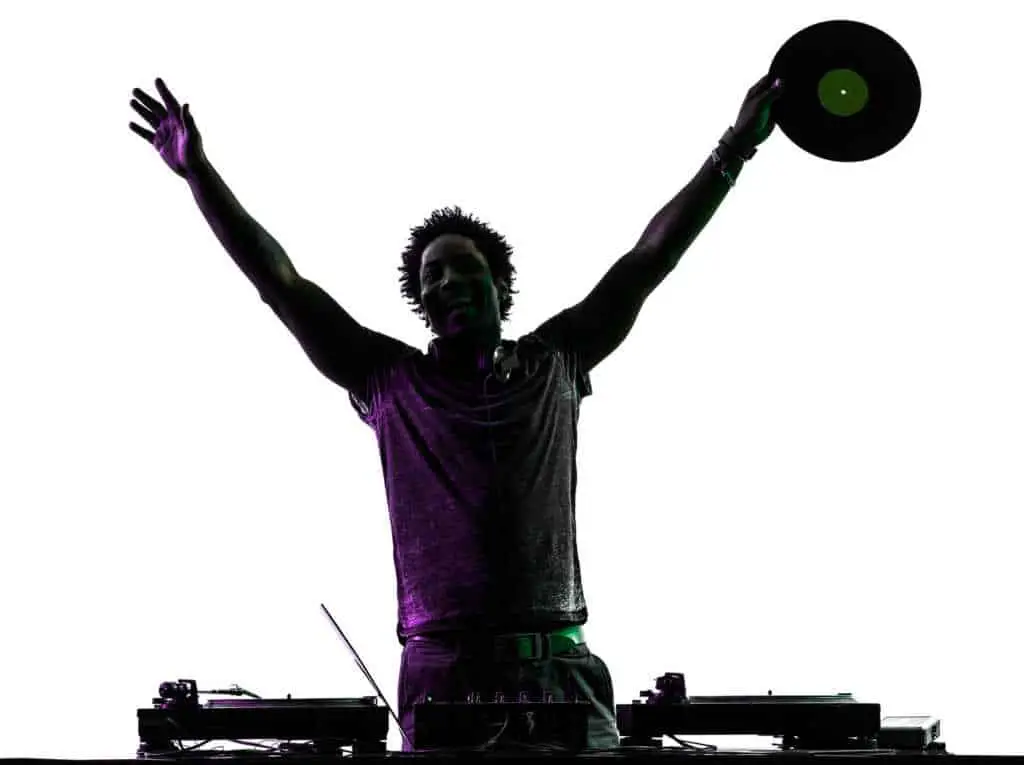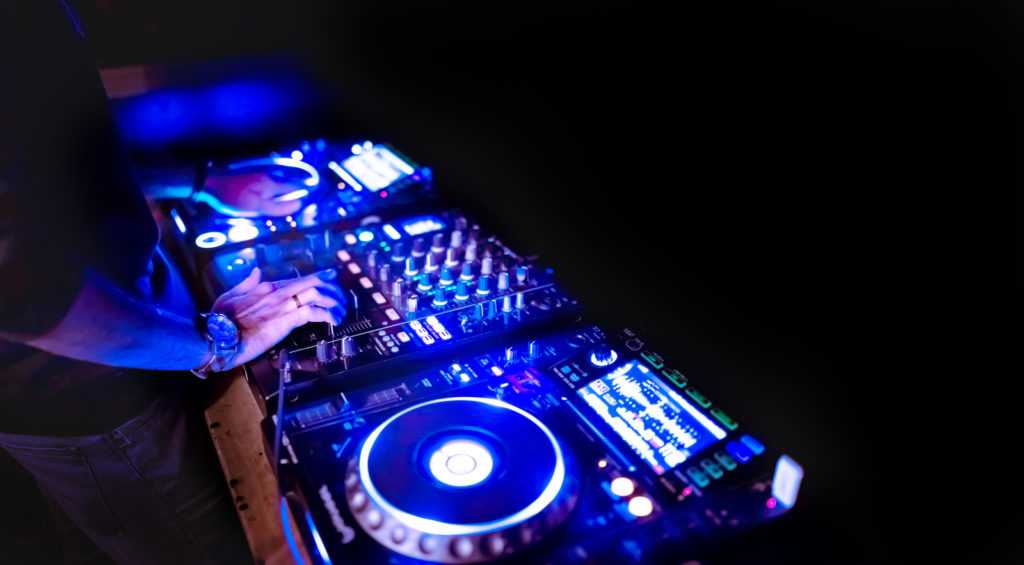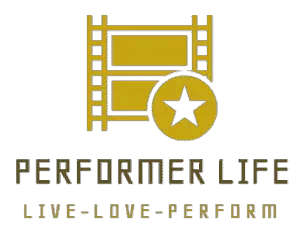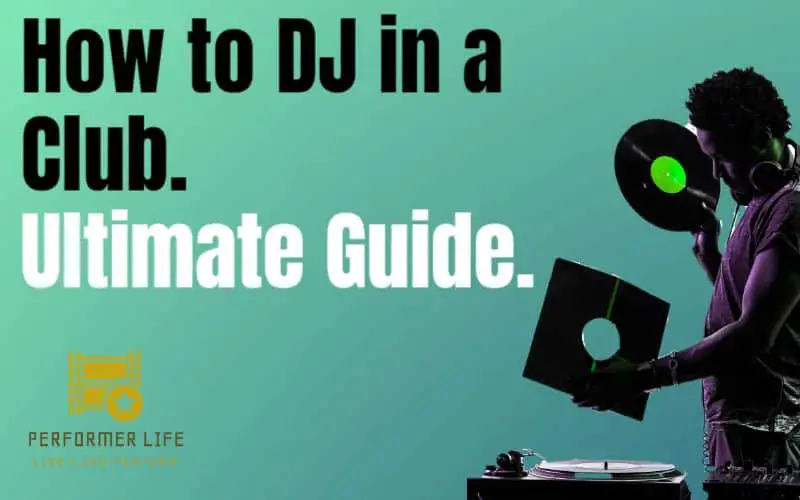Every new DJ knows that clubs hold the best action. Over the years, many DJs have made the transition into the big leagues by becoming regulars at respected clubs.
Some of the famous names include Calvin Harris, Diplo, and Avicii all started out like this. How can you DJ at a club, especially as a complete newbie?
To DJ at a club, you need to ensure you know your craft first. This includes understanding how to use club DJ equipment and having an excellent catalog of hits.
Once you have sufficient confidence in your abilities, it is time to focus on landing that first gig, which will open the club-scene doors.
This guide will cover all you need to know about how to DJ at a club, including what it means, the equipment you should expect to use, and more.
Also, watch out for how to land your first club gig, and mistakes you should avoid as a club DJ.
|
Performer Life is supported by its readers. If you buy through our links we may earn an affiliate commission. |
Table of Contents
What Does a Club DJ Do?
A club DJ provides music entertainment that is in line with the expectations of a club’s management and its customers. In the U.S, this means playing dance music most of the time.
However, some club DJs have been known to think outside that particular box on occasions, to give their audience a unique experience. Others create a specific style and stick to it indefinitely.
The ultimate focus remains to keep the audience in the club entertained, and understanding how to handle transitions effortlessly is key to that. If the mixes and styles resonate with the audience, the DJ’s stock will continue to soar.
It may culminate in them becoming a resident DJ.

How Can You Become a Club DJ?
You don’t need a college degree or any other paper qualification to become a club DJ. In most cases, you only need to land a gig in a club and demonstrate your skills.
If the club management are impressed, you’ll be added to their roster.
This may even lead to being a resident DJ, performing permanently at the club every day.
Find out how to dj techno music to use in raves in parties!
The DJ Equipment Used in Clubs
One of the best things about being a club DJ is that in many cases, you don’t have to worry about equipment as the club will have some of the latest gear in the industry.
This means you can get your job done with just a USB or CD containing your mixes. As a new DJ, you may need to bring your own equipment for your first gig—if it’s allowed—to avoid working with unfamiliar gear.
If you want to become a regular, however, you need to get familiar with some of the most popular club DJ equipment.
Some of them include the Pioneer CDJ mixer and the Pioneer DJM 900 NXS 2 Mixer. Practicing on them will ensure you have a good grasp of the gear.
DJ City has done a video review of the DJM 900 NXS 2. You can see what it’s made of before you get your hands on one.
PioneerDJ models are very popular as most people in the niche are aware of and comfortable with the controls and layout. Of course, the brand’s reputation for reliability and durability also plays a role.
However, Denon DJ is a strong contender you’ll probably run into at some clubs. The Denon SC5000 Prime Media player can stand shoulder to shoulder against most PioneerDJ premium models.
Here’s a tutorial for using the Denon SC5000.
This is not saying that all clubs have such equipment that costs thousands of dollars. You’ll only know the exact gear a club after you’ve paid them a visit. Here’s what you should generally expect in terms of DJ gear setup in a club:
- A mixer
- Two turntables
- DJ software
- Sound system
In some clubs, you may find DJ controllers in use. These eliminate the need for turntables and mixers. They are slowly going out of fashion as some clubs are banning the use of laptops, but they are a cost-effective gear for club DJs.
Apart from being affordable, they are also easier to pack when going to a gig.
Some of the most popular DJ controllers on the market today are the Pioneer DJ DDJRX and the Kontrol S8. If you are using any of these, don’t forget to keep your laptop plugged in to keep playing music.

How to Land Your First Club DJ Gig
If you’ve been getting rave reviews for all your DJ performances at house parties and other such events, you’ll probably want to make the progression to a club DJ as quickly as possible. You should know how to DJ techno music in order to do so!
Getting that first club gig can be difficult, but it is certainly doable. Here’s what you should do.
Start Small
Your first gig most likely won’t come from a club with an established DJ roster and thousands of customers. You should start with those nearby small clubs that have DJs on Friday nights only.
Make sure they get decent traffic on other days of the week and then start positioning yourself for a gig with them.
Get a Lay of the Land and Get Close to the Staff
To know if the club is right for your unique DJ style, you need to visit multiple times. This should be on their busiest nights, so you’ll see what gets the small crowd going.
Pay attention to the type of DJs they employ to evaluate your chances. If they only hire out-of-town experienced hands, it may be harder for you to pitch your talent.
While on your “scouting” mission, make sure you tip the staff at the bar well and talk to them. The conversations can let you in on what the club has lined up for the rest of the month, the name of the club owner, etc.
Once you get the name, find a way to get an audience with the owner.
You don’t need to request a formal meeting. Simply running into them while at the club is enough. Praise the drinks, service, and the DJ during that run-in, and you’ll most likely find an important point to use in your pitch later on.
Don’t do it that night!
Host a Party at a Club
If you’ve got some money to spare, think about hiring out the club for a party where you’ll be the DJ. This is an excellent way to show the club management what you can do.
It doesn’t have to be a big party. Think about birthdays, anniversaries, bachelor’s eves or similar occasions where you have to bring together a few people and show off your skills.
Club owners will also see your DJ promoting skills on display, and in many cases, this is enough to land you a regular gig. Most of them love promoters that can bring in regular revenue.
Create Some Awareness Around Your Brand
The club manager will pay more attention to you during your formal pitch if you can show off a social media presence with thousands of followers. You should also consider creating posters with your stage name, logo, and contact details.
The poster should have some space for date and time, so you can easily edit it to reflect the date of a gig when you get it. Don’t forget to get business cards as well.
The air of professionalism can go a long way into swaying the manager’s opinion in your favor.
Request for a Booking
You’ve probably seen other DJs distributing links to their mix as a sample of what they can do. Unfortunately, most club owners won’t be impressed by that and might not listen to it at all.
You’ll need to show your skills to a full house, so a proper booking is the only way.
If you’ve taken the steps highlighted above, requesting the booking should be straightforward. In many cases, you’ll be penciled in for days that the club owner wasn’t prepared for, such as public holidays.
You may also get an hour to perform in between other acts. Your focus should be on getting your foot in the door. If you don’t succeed at the first time of asking, keep trying. You can consider other venues as well.
If you land the gig, make sure you invite as many people as possible to show the club manager that you have a loyal following.
Discuss Your Pay
Most of the time, it is normal for your first night to perform at the club to be free. However, you need to make it clear that you won’t work for free next time.
You can negotiate a sliding scale fee plan that goes up as your demand and crowd you attract grows.
Get Your Preparations Right
Once you’ve nailed a gig, invite people. You can invite people online and also create posters for the event. Some of them will view your social media pages and listen to your mixes online, so make sure these are readily accessible.
Encourage your friends (and their friends) to come. Remember, the crowd is a great way to show your value to the club owner.
Before the night, take time out to go over the DJ equipment at the club to see what you need to bring along. If the club has everything you need, then you can just focus on practicing your set, in readiness for the big night.
You’ll already have an idea of the kind of music you are expected to play on the night, but don’t forget to ask for any other special requirements. If there are prohibited songs, don’t forget to remove them from your DJ set.
What to Do on Your First Club DJ Gig
After you’ve landed the slot to show your club DJ skills, you need to ensure you deliver on your promise and increase your chances of getting hired for more gigs by the same club (or other clubs in your area).
Here are some of the things you should do.
Handling the Opening Set
If you’ve been penciled in to open for another DJ, it is an important slot that you need to take very seriously. In some cases, it is more challenging than being the headline act for the night.
If you get the opening right, the night will most likely end as a success.
As the DJ playing the opening set on a night with multiple DJs, you need to show a proper understanding of the night’s progression, showing restraint where necessary.
This will ensure you build up the energy gradually, ensuring a smooth transition to the main set.
You’ll need to keep your ego in check and ensure you are playing a balanced set that will create the right mood for the main event.
As a new club DJ, you may be tempted to play tracks with too much energy or to play all the current hits. This will most certainly disrupt the flow of the night and frustrate the club owner and the headline DJ.
This is a sure way to end your club DJ career before it’s even started.
You should also research the headliner to ensure you tailor your opening set to their style. At this stage, you shouldn’t play any tracks produced by the headline DJ, either.
It is unlikely that you’ll be opening for Skrillex or Diplo in your first club DJ gig at your local club, but it’s still something you should keep in mind.
Handling the Headline Role
If you landed a headline gig, you need to know that it’s your responsibility to play all the hottest songs during the club’s peak hours. This is where the skill of reading the crowd will come in handy.
You need to know how to adapt your mixes based on the vibes you are getting from the dance floor.
Your focus should be on getting people dancing and having fun. This will lead to more frequent trips to the bar, so you end up keeping everyone, including the bar owner, happy.
One important thing you must have as a headliner is a powerful stage presence. The crowd generally feeds off your energy, so you don’t want to look bored or you’ll lose them. Don’t be engrossed in your laptop all night.
You need to make sure you are maintaining eye-contact with the bulk of your audience all through the night.
To ensure you have properly planned for the night music-wise, you’ll have to go back to your notes about the club.
What kind of songs do other DJs play there, and how does the crowd react to them? What types of songs have the club management requested or blacklisted?
Armed with this information, you can create a quality mix for the night ahead of time. This will ensure you are only fully focused on striking a connection with your audience during the main event.
Working With the Lights
Lights form a major part of the ambiance in clubs. In many clubs, the lights are designed to coordinate with the DJ’s music. The lighting operators always customize the atmosphere to reflect the music being played at any given moment.
As a newbie to the club DJ scenery, you won’t have any experience with lighting engineers.
This is another reason why you need to get to the venue early enough. It will give you enough time to get familiar with the lighting at the venue (where available).
Experiment with the effects before the club starts to fill out and maybe set some lighting routines if you are allowed.
Proper variation in the grouping of the light system and the overall intensity is a good way to add to the ambience and boost the energy in the club. Various colors have different levels of influence on the overall feel.
For example, while green and blue evoke feelings of calm and cool, red brings warmth.
If the club has a dedicated lighting operator, spend at least an hour with them to create some routines.
Top Mistakes to Avoid as a Club DJ
As a new club DJ, you are bound to make some mistakes. Some of these can slow down the progress of your reputation. Here’s a look at these mistakes and top tips to avoid them.
Playing Little to No Classic or Recurrent Music
As a new club DJ, you may erroneously think that you only need to have a healthy collection of all the latest music.
There is nothing wrong with having a collection of the freshest music at all times, but as a club DJ, you are not playing for a crowd at a listening party.
Nobody wants to spend the entire time in the club wondering where a song came from or who the artist is. This is why you need to be realistic about the type of music that will draw reactions from people on the dance floor.
Most of the people at nightclubs love music, but nowhere near as involved as a DJ or a music blogger. Also, most of what qualifies as new music today will be forgotten in a few months.
This is why you need to focus on getting music that has transcended years for your club DJ gigs instead of just looking for the newest music.
How many times have you seen the crowd go up a level or two when a hit track from five years ago comes on? A quality track and nostalgia is a combination that always works in favor of club DJs.
So, get as many classic, time-tested records as possible, and you can be sure of keeping your audience hooked all through the night.
Poor Reading of the Crowd
As a club DJ, your reputation hinges heavily on how quickly you can build chemistry with the crowd. If you get on set, put your head down and play all the hottest promos you could get your hands on, you’ll most likely have them looking very uninterested.
In the same vein, playing all your mainstream hits early in the night is the perfect way to set the night up for an anti-climax.
To avoid this, the first thing you should do is to get an overview of the makeup of your crowd. If you have a group of women on a girls’ night out, they probably just want to listen to some of the latest mainstream hits from the last 3-6 months.
A crowd made up of young adults on a bachelor’s eve, on the other hand, can be more forgiving and dance to any EDM track, including those they’ve never heard before.
You need to be versatile with your music collection so that you cater to a wide range of audiences.
Always prep the night in such a way that people in the crowd won’t get bored regardless of whether they’ve been there since 9 pm or just came in from another club at 2 am.
As you play your tracks, don’t forget to pay attention to the crowd’s reactions. You’ll always find cues to either sustain a type of music or to switch things up a level.
Overhyping Your Sets on Social Media
While there’s nothing wrong with the occasional promotion of your craft on social media, you need to always do it in moderation.
You don’t want to be the DJ that creates too much hype about their events, only to leave the crowd feeling cheated at the end.
The best DJs mostly use social media platforms to connect with their audience and promote a professional reputation.
It isn’t the place for you to act like you’ll be the headline act in one of the biggest clubs in the city when you’re handling the opening set at your local county club.
Focus on creating a brand that delivers real quality DJ work and then use social media to promote it without coming across as being too pushy or practicing over embellishment.
Not Making Any Efforts to Learn How to Use Industry-Standard Gear
As a new DJ, you may get away with only using budget controllers for a while, but if you are serious about your career as a club DJ, you’ll need to know how to use the industry-standard gear you’ve seen above.
Failing to do this will severely limit your chances of playing at some clubs.
Not all clubs will allow you to bring in your own gear (especially in your early days). Even when they do allow that, you may not find enough space for your controllers.
There’s also the friction that’s bound to happen between you and sound technicians in the club when you try to move their gear or change things up too much.
As an open format club DJ in the U.S, you should know how to use the combination of a Serato mixer and two turntables. If the club plays more techno or house music, you’ll most likely have to use Pioneer DJ’s CDJ.
Understanding these gear will ensure you never have to experience the hassle that comes with switching hardware on short notice.
If you also come across as needy and always requiring special changes, it’s only a matter of time before club owners and resident DJs put you on a blacklist where you’ll get gigs when there’s no other option left.
Getting Cheated by Unscrupulous Club Managers
As a new club DJ, it is not uncommon to find club managers asking you to play for free in exchange for getting a time slot. Some of them get new DJs to play for free initially and then offer them a rate that is well below the average in the market.
If you are in this position, you’ll probably not see a problem with taking the lower pay—especially as a new DJ still building a reputation—but this is a trick you shouldn’t fall for.
If you agree to play for free or collect a rate that is far lower than the going rates for your niche, you’ll only end up making the market worse for everyone.
You’ll also find it difficult to command higher fees in the future if everyone does the same thing.
Of course, you can’t expect huge paychecks right from your first gig as a club DJ. In many cases, clubs tend to go for DJs at a specific point of development that they can afford.
This means you won’t be working at the most exclusive clubs in your city in the early days.
Wherever you start from, however, you need to ensure you are not being undervalued. A good tip is to look for a mentor with a perfect grasp of the market. This will help you a great deal in negotiations.
Final Words
Becoming a club DJ can be richly rewarding. It is the perfect way to earn a living from your craft as a DJ while also enhancing your reputation. Making the transition, however, is not always easy.
It requires being able to understand the industry first of all and then working hard to get your foot in the door.
Once you land your first gig, you can gradually build up your reputation to a point where you’ll be one of the go-to acts for most clubs. You may also snag up a resident DJ position in no time.
Sources
- Magnetic Mag: HOW TO BECOME THE RESIDENT DJ AT YOUR LOCAL NIGHTCLUB
- What DJ Equipment Do Clubs Use?
- Mixed In Key: Learn How To DJ in Nightclubs
- DJ Tech Tools: Mistakes New Club DJs Make (And How To Avoid Them)
- DJingpro: How to DJ at a club: Top tips to begin playing at clubs and bars
- Digital DJ Tips: 7 Easy Steps Towards Your First DJ Booking
- Beat Match Guru: 17 Tips on How to Become a Club DJ





